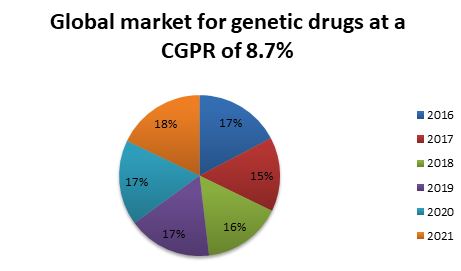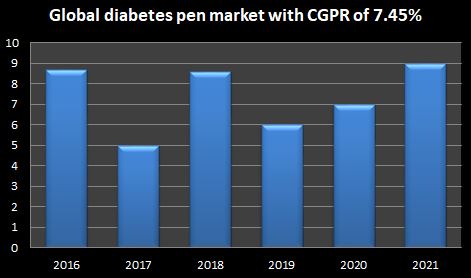Theme: Acquainting New Insights of Diabetes & Healthcare
Diabetic 2020
ME Conferences summons the world's leading diabeticians, endocrinologists, surgeons, physicians, scientists, and scholars to the “28th International Diabetes and Healthcare conference” on July 15th and 16th 2020. This leading conference inspires the recent improvements related to diabetes, the main aim of this conference is sharing the knowledge of expertise in the respective field to the upcoming scholars and researchers to increase their knowledge related to diabetes, obesity and endocrinology. The scientific sessions include the various sessions which highlight the Diabetes types and complications, Endocrinology and metabolic syndrome, diabetic retinopathy, diabetic neuropathy, diabetic diet and nutrition, diabetes and heart disease, diabetes tests and diagnosis, and prevention and treatment of diabetes.
ME Conferences welcome the delegates across the country to enlighten the young and fresh minds of the scholars, researchers, student communities and industrial delegates to attend the “28th International Diabetes and Healthcare Conference’’ with a theme “Applying Science and Technology for a Diabetes free World” .
Why to attend?
This gathering will exhibit the concentrated learning on the appropriation of knowledge, opportunities to network and talk about science and medicine on diabetes and health care and the recent advances and innovations related to diabetes for the making of better health. New generation scholars and researchers will have the opportunity to explore more areas of expertise on health in diabetes. With members from all around the globe increasing the knowledge about diabetes and health care and the new advance related to diabetes. This is your best opportunity to reach the largest gathering of participants from diabetes community.
Target Audiences:
- Diabetologists
- Researchers
- Endocrinologists
- Doctors
- Physicians
- Nutritionists
- Scientists
- Academic Professionals
- Medical Colleges and Pharma Companies
- Medical Hospitals
- Students
- Business Entrepreneurs
- Manufacture Medical Devices & Companies
- Healthcare Training Institute
- Oncologists
- Neurologists
- Pediatric doctors
- Fitness Professionals
- Public Health Professionals
Track 1: Diabetes: Types and Complications
Diabetes is a sickness that occurs when blood glucose (blood sugar) is too high. Blood glucose is the main source of energy and comes from the food which consumed. Insulin, a hormone made by the pancreas which helps the glucose from the food that get into the cells to be used for energy. Sometimes the body doesn’t make enough insulin or doesn’t use insulin well. Over time, containing too much glucose in blood can cause health issues. The common types of diabetes are type 1 diabetes, type 2 diabetes, and gestational diabetes. In type 1 diabetes the body doesn’t make insulin due to this immune system attacks and destroys the cells in pancreas which makes insulin in human body. This type diabetes can be diagnosed in children and young adults. Gestational diabetes develops in some women when they were pregnant.
Track 2: Endocrinology and Metabolic Syndrome
Endocrinology mainly deals with the endocrine system which is a collection of glands that produce hormones that regulates metabolism, growth and development, tissue function, and reproduction. Endocrine disorders are typically divided into two categories, when a gland produces too much or too little of an endocrine hormone is called hormone imbalance. Another category is due to the development of lesions (tumor) in the endocrine system. Metabolic syndrome is a group of conditions that occur together which increase the risk of heart disease, heart stroke, and type 2 diabetes. Conditions like these include high blood pressure, high blood sugar, excess body fat around the waist and abnormal cholesterol. It is also connected to a condition called insulin resistance. Risk factors such as age, ethnicity, obesity, diabetes increase the chance of having metabolic syndrome.
Track 3: Diabetic Retinopathy
Diabetic retinopathy is a diabetes complication that affects eyes which is caused by damage of blood vessels of the light-sensitive tissue at the rear part of the retina. This condition leads to early blindness if left untreated. The regular side effects such as blurred vision, impairment of colour vision, poor night vision, floaters. This condition can be developed in anyone who has type 1 diabetes or type 2 diabetes. Too much sugar in blood leads to the blockage of the tiny blood vessels that maintain retina. Diabetic retinopathy can be prevented by managing diabetes by eating healthy and physical activities, doing at least 150 minutes of moderate aerobic activity like walking each week and monitoring the blood sugar level, more-frequent measurements may be required if your stressed.
Track 4: Diabetic Neuropathy
Diabetic neuropathy is a type of nerve damage which caused by high blood sugar levels sustained over a long period of time. Peripheral neuropathy, autonomic neuropathy, proximal neuropathy, focal neuropathy are the several types of nerve injuries. The condition usually develops gradually and it can be identified by the symptoms like numbness, loss of sense of touch, burning sensation in feet, dizziness, diarrhea, nausea, muscle weakness, loss of balance, trouble of swallowing and indigestion. Diabetic neuropathy can be diagnosed by physical examination by the neuropathies.
Track 5: Diabetic Diet and Nutrition
Diet and exercise are both key factors of a successful strategy to manage diabetes. These two factors can sharply reduce the likelihood of diabetes. Diabetic diet is a healthy-eating pattern which consisting rich in nutrients and low in fat and calories. Essential elements like fruits, vegetables, and whole grains could be included in diet plan. The amount of sugar intake will affect the sugar level of the patients, so consuming less amount of sugar and eating healthy can prevent diabetes. Nutrition plays a vital role in diabetes, eating the healthiest foods in moderate amounts and sticking to regular mealtimes can affect the risk of getting diabetes. Weight loss planning, counting carbohydrates, meal plate management such things can be useful to live healthy lifestyle.
Track 6: Diabetes and Heart Disease
High blood glucose from diabetes can damage blood vessels and nerves which control heart and blood vessels. The factors affecting the chances of developing heart disease or heart stroke are
- Smoking
- High blood pressure
- Abnormal cholesterol levels
- Obesity and belly fat
- Family history of heart disease
The connection between diabetes and heart disease starts with high blood sugar levels, the high glucose in the blood can damage the arteries, which causes them to become stiff and hard. Atherosclerosis is a condition which occurs when blood vessels are filled with fatty material. This might eventually block the blood flow to heart or brain, which causes the heart attack or heart stroke.
Track 7: Diabetes and High Blood Pressure
Diabetes damages arteries and make them targets for hardening is called atherosclerosis, which can further cause high blood pressure. The risk of having diabetes may increase the risk of heart disease, stroke, kidney disease and other health problems Diabetes people shouldn’t have blood pressure more than 130/80. If patients have both diabetes and high blood pressure this might results risk of having cardiovascular diseases. If diabetes is not controlled situation it can cause serious threat to kidneys, eyes, nervous systems, heart and blood vessels. People with high blood pressure and diabetes are sometimes given blood pressure machines like ACE inhibitors, because they are thought to protect the kidneys.
Track 8: Genetic Diabetes
Diabetes is an complicate set of diseases with no single reason. Here dietary supplements make a few people increasingly defenseless against diabetes, especially with the right environment. Diabetes, frequently implicit as diabetes mellitus, interpret a social affair of metabolic diseases is either in light of the fact that insulin creation is incomplete, or in light of the way that the body don't respond appropriately to insulin, or both the sorts. In type 1 diabetic patients, they pickup hazard factors from the both parents. Current exploration has demonstrated that offspring create 3%of the time if the mother has the condition and 5% if the father has the condition. Ecological changes also causes type 1 diabetes. A few infections likewise cause type-1 diabetes like measles infection, rotavirus.Type-2 is the more generic type of disorder which incorporates 90% of the world cases. 70% patients with type-2 diabetes are acquired from the parents while the rest of the patients were obese.
Track 9: Diabetes in Healthcare
Ethnic, social, religious, sex, and financial contrasts influence medicinal services access and intricacy chance in personals with diabetes. Current investigations have prescribed bringing down the body mass index (BMI) cut point for testing for Asian Americans to ≥23 kg/m2. Female with diabetes, contrasted and male with diabetes, have a 40% more serious danger of occurrence coronary illness. Financial and traditional imbalances prevail in the arrangement of human services to people with diabetes. Accordingly, children with type-1 diabetes from racial/ethnic populaces with lower financial status are in danger for poor metabolic control and poor enthusiastic working.
Track 10: Insulin Signalling, Action and Secretion
Insulin signalling occurs when carbohydrates are consumed, digested, and absorbed, the pancreas senses the constant rise in blood glucose concentration and releases insulin to promote an increase of glucose level from the blood stream which is characterized by hyperglycemia. Lack of severe reduction in insulin secretion due to auto immune destruction of beta cells is the cause for type 1 diabetes. The advancement of type 2 diabetes is complex, which involves dynamic increase of insulin resistance and relative deficiency in insulin secretion, leading to overt hyperglycemia.
Track 11: Diabetes Tests and Diagnosis
Fasting plasma glucose (FPG) test is a blood test for measuring the blood glucose level at a single point of time. For getting the most reliable test results, it is best to take this test in the morning, after doing fast for at least 8 hours. A1C test provides average levels of blood glucose over the past 3 months. Food and water can be consumed before taking A1C test, parameters like age, anemia or any other problem with blood will be considered to diagnose diabetes by using A1C test. Results of A1C test considered in percentage, such as A1C of 7 percent. The higher the percentage, the higher are average blood glucose levels. Random plasma glucose(RPG) test is to diagnose diabetes when diabetes symptoms are present in blood and the test can be taken at any time with or without fasting. Diabetes diagnosis includes the following methods they are,
- Weight loss
- Healthy eating
- Regular exercise
- Insulin therapy
- Blood sugar monitoring
Track 12: Prevention and Treatment of Diabetes
Consuming sugar foods and refined carbs can be hazardous for individuals on the fast track to developing diabetes, the body rapidly breaks the consumed food into small sugar molecules which are absorbed into bloodstream. This arise in blood sugar stimulates pancreas to produce insulin. Performing physical activity like exercise on daily basis will result insulin sensitivity increase in cells. Managing blood sugar level is the primary goal of diabetes treatment, in order to avoid complications of the disease. Type 1 diabetes is guided with insulin as well as diet changes and exercise. Type 2 diabetes may be instructed with non-insulin medications, insulin, weight reduction, or dietary changes. Consuming dry fruits, nuts in small amounts provide health benefits in blood sugar regulation also withdraw smoking will reduce the risk factor of cancer, heart disease and risk of developing type 2 diabetes.
Track 13: Herbal and Alternative Remedies
Herbal therapies have led to improved glucose control in many people with diabetes, using the more natural ingredients can lead to manage the blood sugar level. Plant based therapies like
- Aloe vera
- Bliberry extract
- Cinnamon
- Ginger
- Okra
- Bitter melon
These are commonly used in ayurvedic medicine and oriental medicine for treating diabetes. Certain herbs, vitamins, and supplements may relate with diabetes medications including insulin and increase the hypoglycemic effects. Herbs and plant sources listed below have been employed traditionally in the treatment of diabetes.
- Allium
- Bauhinia Forficata And Myrcia Uniflora
- Coccinia Indica
- Ficus Carica Ginseng
- Berberine
- Cinnamomym Tamala
- Vinca Rosea
Track 14: Diabetic Drug Market
The global diabetic drugs market is divided on the basis of drug type, application and geography. The drug types advised such as Injectable Drugs and Oral Drugs. Injectable drugs are the drugs which are injected directly into the body such as Insulin, Exenatide, Liragultide, Pramlintide. The Oral medications work by different mechanisms like producing more insulin and decreasing the insulin resistance of the body and by reducing gluconeogenesis of the liver. The oral medications available in the drug market such as
- Biguanides
- Sulfonylureas
- Meglitinides and D-Phenylalanine Derivatives
- Thiazolidinediones
- DPP-4 Inhibitors
- Alpha-glucosidase Inhibitors
- Bile Acid Sequestrants
Track 15: Advanced Therapies and Diagnostic Methods
Therapy of diabetes includes A1C test, random blood sugar test, fasting blood sugar test and oral glucose tolerance test these are the most general perceived tests for the preliminary of diabetes. The application of a glucose lowering therapy is dependent on considerations like severity of hyperglycemia, hepatic and renal associated functions. The therapeutics of type 1 diabetes includes stimulation of insulin secretion through GLP analogues like insulin injections to compensate for beta cell defects, DPP-4 inhibition by Sitagliptin, and increased islet survival and islet cell regeneration. The therapeutics of type 2 includes several conventional therapies like sulfonylureas, Repaglinide enhance insulin secretion and Troglitazone. By keeping the blood sugar level as close to normal as possible can delay or prevent diabetes. Treatment for diabetes includes
- Taking insulin
- Carbohydrate
- Protein intake count
- Frequent blood sugar monitoring
- Eating healthy foods
- Exercising regularly
- Maintaining healthy weight
Track 16: Clinical Trails and Case Studies
The case studies of the diabetes is to detect the overall condition of the disorder, there are numerous case and research studies including animal models and human models. Type 2 diabetes is a modern epidemic. The intention of the current research is to re-investigate the mechanisms by which and the depth in which integrated care for diabetes has been implemented, whose outcomes have been concluded and how the context and mechanisms have affected the outcomes. Two categorical types of prediabetes, depending on when the body declines to produce insulin, the hormone that signals body tissues to use glucose is impaired glucose tolerance and impaired fasting glucose. Scientists are evaluating the data to understand the effects of different drugs on the two distinct types of prediabetes.
Importance and Scope:
Diabetes is a chronic disease that results when the pancreas does not produce enough insulin or when the body cannot effectively use the insulin it produces. As the number of patients growing across the world, there has never been a stronger and more urgent need for therapeutic measures that arrest the growth of the disease and alleviate its secondary manifestations. In Type 1 diabetes total beta cell loss occurs. In Type 2 diabetes, partial beta cell loss occurs before diagnosis, and the progressive beta cell loss during the life of the patient increases the severity of the disease.
Global Markets for Generic Drugs:
The global market for generic drugs is $352 billion in 2016 at a compound annual growth rate of 8.7%, by 2021 it reaches to $533 billion.
- The global market for generic drugs is projected to increase at a compound annual growth rate of 8.7% in the forecast period of 2017 to 2021
- The rise is expected due to increase of patients with diabetes.
- India and china countries are the key regionals in generic drug market.
- In Finland there are about 50000 people with type 1 diabetes and 350000 people with type 2 diabetes. The number of undiagnosed cases of type 2 diabetes is estimated around 1 lakh.
- People with 55-59 years are more affected with type 2 diabetes, the statistics for 60-74 years are nearly high.
Global Diabetes Pen Market:
Global diabetes pen market valued at $5.86 billion in 2016 and expected to reach $9 billion by 2021, at a CAGR rate of 7.45% from 2017 to 2021
- There is a rise in usage of insulin pen in medical applications, supplements, and skin care. The technological improvements in insulin infusion devices is likely to increase the growth of the global insulin pen market in upcoming years.
- The reusable pen has dominated the market with the highest the market share of 52.48% in 2018.
- North America region is dominated in the usage of diabetic pen due to increasing number of diabetic patients, among countries like North America, Europe, Asia pacific and Middle East.
International Associations Related to Diabetic Research:
- American Diabetes Association
- World Diabetes Foundation
- International Diabetes Federation
- Latino Diabetes Association
- Juvenile Diabetes Association
- Missouri Diabetes Association
- Canadian Diabetes Association
- Swedish diabetes foundation
- Norwegian diabetes association
- Polish diabetes association
- German diabetes association
- Romanian federation of diabetes
List of Best Universities Dealing with Diabetic Research:
- Harvard University
- Massachusetts Institute of Technology
- Columbia University
- Oxford University
- Yale University
- McMaster University
- University of Basel
- University of Strasbourg
- University of Bonn
- KU Leuven
- Swiss Federal Institute of Technology in Lausanne
- University of California at Santa Barbara
- Free University of Amsterdam
- Texas A&M University
List of Top Hospitals and Research Clinic Dealing with Diabetic Research:
- Mayo clinic (Rochester, MN)
- Massachusetts General Hospital (Boston, MA)
- Cleveland Clinic (Cleveland, OH)
- Johns Hopkins Hospital (Baltimore, MD)
- USCF Medical Centre (San Francisco, CA)
- Bassetlaw Hospital – Workshop, Nottinghamshire (UK)
- Addenbrooke’s Hospital – Cambridge, Barnet General Hospital (UK)
- Cygnet Hospital Beckton (UK)
- Wooridul Spine Hospital-Seoul (South Korea)
- Fortis Memorial Research Institute (India)
List of Diabetic Societies
USA:
American Association of Clinical Endocrinologists, American Association of Endocrine Surgeons, American Diabetes Association, American Society of Endocrine Physician Assistants, American Thyroid Association, Association for Program Directors in Endocrinology, Diabetes and Metabolism, Endocrine Nurses Society, Pediatric Endocrine Society, Society for Behavioral Neuroendocrinology, The Association of Program Directors in Endocrinology
Europe:
European Network for the Study of Adrenal Tumors, European Neuroendocrine Association, European Neuroendocrine Tumor Society, European Society for Paediatric Endocrinology, Associazione Medici Endocrinology, Austrian Society for Endocrinology and Metabolism, Belarusian Association of Endocrinologists, Belgian Endocrine Society, Bulgarian Society of Endocrinology, Croatian Society for Endocrinology, Cyprus Endocrine Society, Czech Endocrine Society, Danish Endocrine Society, Egyptian Association of Endocrinology, Diabetes and Atherosclerosis, Estonian Endocrine Society
Middle East:
Iran endocrine society, Israel society for Pediatric Endocrinology, Israel society of Research, Prevention and Treatment, Egyptian Association of Endocrinology, Diabetes and Atherosclerosis, Egyptian Society of Endocrinology and Obesity, Augusta Victoria Hospital, Arabic Association for the Study of Diabetes and Metabolism, Chronic Care Center , Dubai Diabetes Center, Dubai Health Authority , Gabric Diabetes Education Association, National Diabetes Organization, Qatar Diabetes Association, The Endocrine Society of India, German Endocrine society, The European society of Endocrinology, International society of Endocrinology, Spanish society of Endocrinology, The society of Endocrinology
Asia:
Asian Association of Endocrine Surgeons, ASEAN Federation Of Endocrine Societies, Australasian Paediatric Endocrine Group, South Asian Federation of Endocrine Societies, Asia Pacific Pediatric Endocrine Society, Endocrine Society of the Republic of China, Vietnam Association of Diabetes & Endocrinology, Endocrine Society of Thailand, Indonesian Society for Endocrinology, Hong Kong Society of Endocrinology, Metabolism and Reproduction, Endocrine and Metabolic Society of Singapore Malaysian Endocrine and Metabolic Society, Pakistan Endocrine Society, Syrian Society of Endocrinology
Related Conferences:
- 3rd Global Diabetes Summit July 15-16, 2020 Helsinki, Finland
- 31st International Congress on Prevention of Diabetes and Complications September 23-24, 2020 Rome, Italy
- 15th International Conference on Endocrinology and Metabolic Disorders October 01-08, 2020 Vienna, Austria
- 2nd Annual Conference on Diabetes, Endocrinology and Metabolism October 08-09, 2020 Milan, Italy
- International summit on Diabetes October 07-08, 2020 Barcelona, Spain
- 21st Annual Diabetes Conference 07th March, 2020 New York, United States of America
- 80th Scientific Sessions by American Diabetes Association, June 12-16, 2020 Chicago, Illinois
- 26th International Conference on Human Metabolic Health-Diabetes, Obesity & Endocrinology June 22-23, 2020 Dubai, UAE
- World No Diabetes and Obesity Congress March 23-24, 2020 London, UK
- 3rd WORLD CONGRESS ON DIABETES AND ENDOCRINOLOGY SUMMIT SEPTEMBER 27-28th 2020, Dubai, UAE
- 14th International conference on Diabetes and Metabolism May 21-22,2020 London, UK
Conference Highlights
- Diabetes: Types and Complications
- Endocrinology and Metabolic Syndrome
- Diabetes and Heart Disease
- Diabetes Tests and Diagnosis
- Diabetic Neuropathy
- Diabetic Diet and Nutrition
- Diabetes and High Blood Pressure
- Insulin Signalling, Action and Secretion
- Prevention and Treatment Of Diabetes
- Herbal and Alternative Remedies
- Diabetic Drug Market
- Advanced Therapies and Diagnostic Methods
- Diabetic Retinopathy
- Clinical Trails and Case Studies
- Diabetes in Healthcare
- Genetic Diabetes
To share your views and research, please click here to register for the Conference.
To Collaborate Scientific Professionals around the World
| Conference Date | July 15-16, 2020 | ||
| Sponsors & Exhibitors |
|
||
| Speaker Opportunity Closed | |||
| Poster Opportunity Closed | Click Here to View | ||
Useful Links
Special Issues
All accepted abstracts will be published in respective Our International Journals.
- Journal of Diabetes & Metabolism
- Endocrinology & Metabolic Syndrome
- Journal of Diabetic Complications & Medicine
Abstracts will be provided with Digital Object Identifier by














